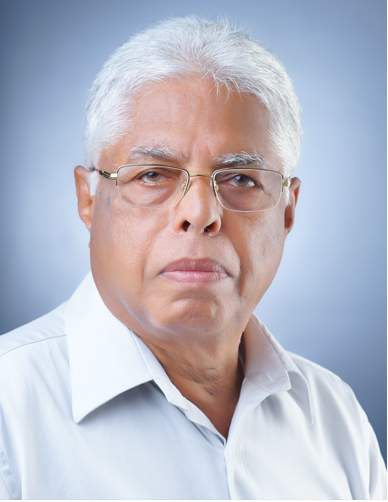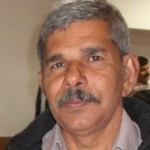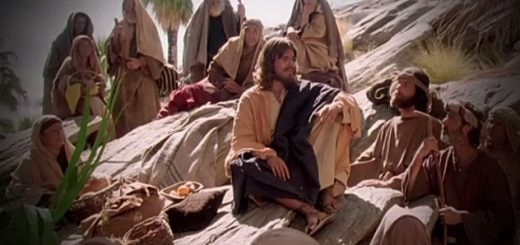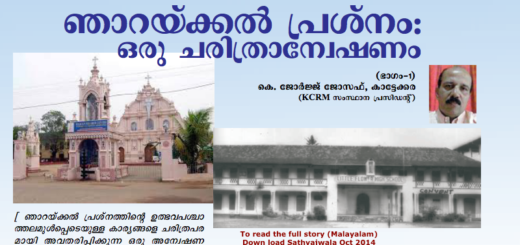Why? Varghese Pamplanil

Varghese Pamplanil
(Note: Shri Varghese Pamplanil, is an voracious reader and a unique thinker. He, graduated in economics with politics and world history as optional. He has worked as a high school teacher of In 1963 joined RBI Central Office Mumbai, Public Debt Manage Management‐  giving procedural instructions to RBI Public Debt Offices for 15 years. Did post‐ graduate course in the Bombay School of Economics. For carrier prospects, shifted to Central Office, Department of Personnel Management. Transferred to Trivandrum in 1981, worked mostly in the departments dealing with banking and non‐banking supervision and urban cooperative banks such as Meenachil East Urban Bank, Pala Urban Bank etc. was Principal Inspecting Officer of erstwhile Lord Krishna Bank, South Indian Bank and Catholic Syrian Bank. Was part of the team which conducted the last inspection of Bank of Cochin prior to its liquidation. Worked in Chennai mainly dealing with above areas. Retired in October 2000. Joseph Mattapplly – asso. editor)
giving procedural instructions to RBI Public Debt Offices for 15 years. Did post‐ graduate course in the Bombay School of Economics. For carrier prospects, shifted to Central Office, Department of Personnel Management. Transferred to Trivandrum in 1981, worked mostly in the departments dealing with banking and non‐banking supervision and urban cooperative banks such as Meenachil East Urban Bank, Pala Urban Bank etc. was Principal Inspecting Officer of erstwhile Lord Krishna Bank, South Indian Bank and Catholic Syrian Bank. Was part of the team which conducted the last inspection of Bank of Cochin prior to its liquidation. Worked in Chennai mainly dealing with above areas. Retired in October 2000. Joseph Mattapplly – asso. editor)
The Church of Rome and Kerala Christians Democracy, despite all its faults is the accepted norm of social intercourse, polity and State in all the civilised societies in the present day world. Absolutistic, autocratic, monolithic, monarchical tyrannical regimes have disappeared in most parts of the earth. The system based on free discussion and dialogue, agreements, disagreements, arguments, acrimonious debates, vociferous protests, lampooning, satire, criticisms, name callings and what not is the preferred order of the day. While the process is messy and sometimes frustrating, in the end some via media is found till the next round of ironing out differences. There is no perfect system or structure. There is no absolute and eternal truth. The crucible of ideas are churned continuously, formed and reformed. This process, by and large, avoid assassinations, mayhem, violence and large scale spilling of bloodshed. Some sort of equilibrium is generally attained despite constant interruptions .
In the world of today, ethical behaviour is evolved from the extant cultural environment, in the historical context; it is influenced by the prevailing modes of thoughts and ideas. Religion can not stand alone or remain secluded in its own niche. The ideas of right and wrong are formed consciously or un-consciously on a general understanding of the world and humankind’s place in the overall scheme of things. Autonomous morality is independent of religion. Its principles are not tied to the apron strings of religion. Ethics and morality is required to be justified by the yard stick of reason and experience.
Another significant development world over is decentralisation and delegation of powers and responsibilities. Monoliths are broken into smaller entities to accommodate local aspirations. The age old attempts of the Christian churches including the Church of Rome for world hegemony have no takers in the enlightened modern societies. The Church with its pyramidal organisational structure, which from the late nineteenth century onwards has been claiming for itself “infallibility” is out of place now. Its continued obsession with the “ Divine Command Theory” claiming for itself the sole custodianship of “omniscient “ knowledge, “ omnipotent” power “omnipresent “extension and “ moral perfection” is out of sync with the present day realities.
Rome’s attempts to imposing a discipline that carries the echoes of its imperial association of the past are doomed to fail. The church appears as an anachronism in today’s world. Vatican is compelled to confront the the reality of its irrelevance in the modern world. The plethora of the Church’s dogmas is a tool for the hierarchy to exercise total iron clad control over its members by demolishing individual aspiration and independence. The Church doesn’t respect even the universal and fundamental human rights. The intellectual Lilliputians in places like Kerala appear to be prone to gulping down the pigs-swell evacuated by the Mafiosi Curia in Rome.
A more acceptable arrangement seems to be independent regional religious organisations attuned to local ethos, independent of centralised control, as an alternative. These local entities may be led by women and men of goodwill and matured wisdom. These communities spread across the world may informally be linked ecumenically, sharing thoughts and ideas for the benefit of the human species. At the local level, spiritual leadership could be entrusted to matured and wise, one spouse women and men, widows and widowers elected by the assemblies concerned. The aim ideally be spiritual ennoblement, avoiding the craze for wealth, power and pomp. Constructing huge architectural monstrosities in the guise of churches, which may eventually become libraries, hotels, clubs or even places of “Mrs.Warren’s Profession “ appears to be waste of scarce and precious resources. Spirituality and worship of the Deity has been equated to providing comfortable, if not luxurious, life style to the priestly class who masquerade as the Deity’s earthly anifestations.
Serving God, now means serving these moochers. In the United States of America and in some other countries, groups known as “ NONES” ( No Church ) constitute a significant segment of the population. Their numbers are in the increase. They have turned away from organised religion and yet seek rich, in unorthodox ways, spiritual lives. This” Not Church” communities who have given up on organised religion, have not given up on faith. They function as a congregation does : engage one another in spiritual conversation and prayer, delivering food when some one is sick and working together to serve the poor. Organised religion to them is flavourless and tough like supermarket tomatoes. They prefer the local verities.
The” Nones” have not given up the concept of religion, but find it worthwhile to put in place their own set up. Diana Butler Bass’s new book ‘ Christianity After Religion’ notes that the recent times have been particularly challenging for organised religions in the US; from the Catholic sex abuse scandal to the entanglement of faith in heated political campaigns, resulting in in a “ sort of ‘participation crash’ “.
Even some mega-churches, which prided themselves on successfully marketing their versions of faith, have floundered. The general population seems to have turned themselves off by traditional religion. But the hunger for spiritual connection and community feeling has not disappeared.
The highly centralised Roman Church with its 2414 Canon Laws have no relevance in today’s world of empirical secular humanism, need based ethics and democratic polity. No more “ Peter’s Pence” to the mandarins of Rome, seems to be the trend. Incidentally, it is inconceivable that the old fisher-man Peter, probably senile and suffering from acute arthritis, would undertake a hazardous journey from Jerusalem to the far away Rome, where Nero was playing his notorious fiddle and howling with madness while enjoying the inferno of the burring city, to be martyred there to substantiate “I am Peter” claim of the bishop there. The nineteenth century emanated “Infallibility” claim of the Pope is looked down upon with contempt and derision, if not as the biggest joke of all ages.
Moral and ethical behaviour will not go away from human realm whether organised religions exist or exit. Every society will find its own moral equilibrium attuned to its ethos even in the absence of totalitarian religions with centralised authority like the Church of Rome.
Mob. 9447252533.
Email: pamplanil@gmail.com
















